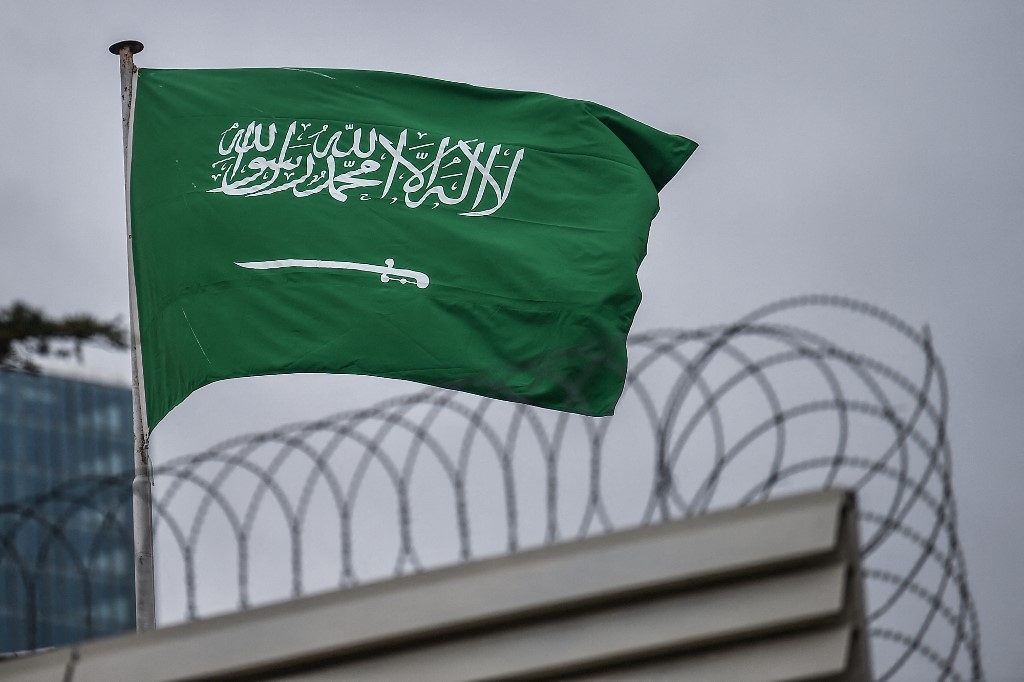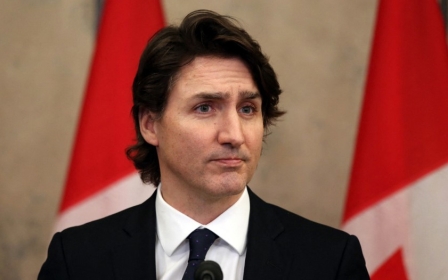Saudi Arabia executes two Bahraini men, rights group labels killings 'arbitrary'

Saudi Arabia said it has executed two Bahraini men accused of plotting "terror" operations, according to the kingdom's interior ministry, bringing the total number of executions in the country to nine this past month.
Saudi authorities identified the two individuals as Jaafar Sultan and Sadeq Thamer, who were charged with “joining a terrorist cell led by a man wanted in Bahrain”, the ministry said in a statement carried by the state-run Saudi Press Agency.
The two Bahrainis “received training in camps belonging to terrorist entities aiming to destabilise the security of Saudi Arabia and Bahrain”, the ministry added without mention of which groups the executed men were accused of being associated with.
Saudi Arabia had told the United Nations previously the men had been sentenced to life in prison in Bahrain in absentia. Their Bahraini citizenship was stripped from them.
They were also accused of aiding “terrorists” in Saudi Arabia by smuggling explosive materials and supporting plans to carry out attacks in Saudi Arabia and Bahrain.
New MEE newsletter: Jerusalem Dispatch
Sign up to get the latest insights and analysis on Israel-Palestine, alongside Turkey Unpacked and other MEE newsletters
According to Amnesty International, Sultan and Thamer were arrested in Saudi Arabia on 8 May 2015 and were sentenced in October 2021.
Amnesty criticised the October 2021 trial and conviction, saying in a statement that the men "told the court that they were tortured and that their so-called confessions were extracted under duress".
The kingdom has called the torture allegations “entirely unfounded”.
Sayed Ahmed Alwadaei, director at the Bahrain Institute for Rights and Democracy, said in a statement given to Middle East Eye that the executions should be categorised as arbitrary deaths.
“These executions are arbitrary as the two men were subjected to coerced confessions under torture which were then used as evidence against them during an unfair trial, a practice prohibited under international law," Alwadaei said.
"The Saudi leadership feels they are immune from any consequences when they execute men they have tortured. The Bahraini regime is complicit as they failed to act to save the lives of their citizens, providing a green light to Saudi to proceed with their executions."
Growing number of executions
Saudi Arabia has conducted more than 40 executions this year, based on state media reports.
According to Reprieve and the European Saudi Organisation for Human Rights, the use of the death penalty in Saudi Arabia has almost doubled since the rise to power of Crown Prince Mohammed bin Salman in 2015.
The report also found that more than 1,000 death sentences have been implemented since 2015.
This month alone, the kingdom has conducted nine executions. Last week, the interior ministry announced that Saudi nationals Hassan bin Issa al-Muhanna, Haidar bin Hassan Muwais and Mohammed bin Ibrahim Muwais had been put to death.
And earlier this month, UN experts expressed alarm at the imminent execution of three members of the Howeitat tribe in the Tabuk province of northwestern Saudi Arabia, for resisting eviction to make way for the Neom megacity project.
Middle East Eye delivers independent and unrivalled coverage and analysis of the Middle East, North Africa and beyond. To learn more about republishing this content and the associated fees, please fill out this form. More about MEE can be found here.





